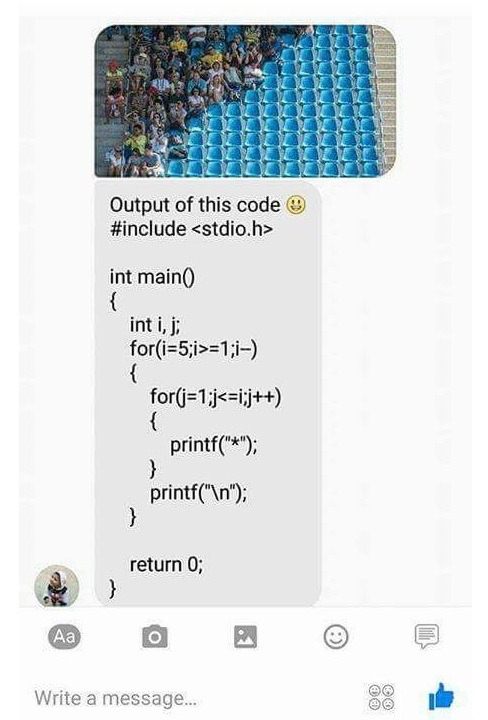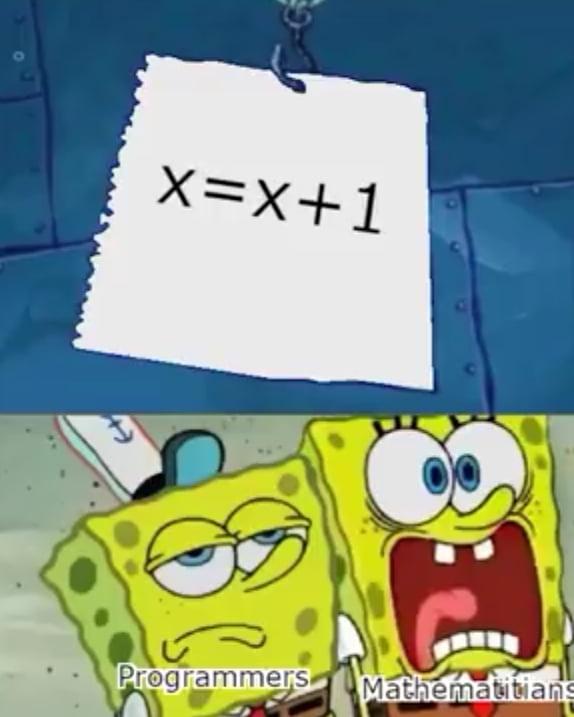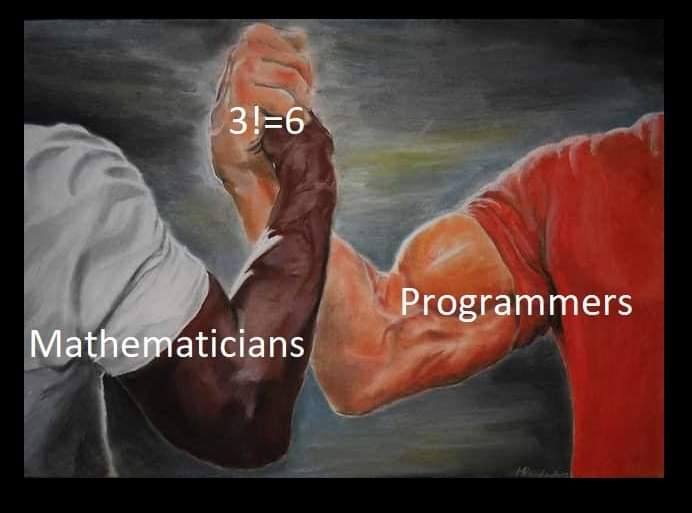Disclaimer: This is completely unrelated to competitive programming.
In the light of the recent blog posted (and deleted) by sparky_master_wch1226 and qwaszx_ak_ioi, coincidently, the same classic Chinese article, “On the Six Fallen States” (六國論, 六国论) is mentioned. This article was written by Su Xan (蘇洵, 苏洵) during the Northern Song Dynasty (北宋), and it is now shared by users living in Botswana (probably not) and Japan on a competitive programming platform after almost a millennium. Undoubtedly, this is one of the best articles in the history of China. Indeed, in most Chinese-speaking places, this article is introduced to students. Not only does this article demonstrate high-level argumentation skills, but at the same time reflects the history of the warring states period (戰國時代, 战国时期) to the situation at that time and allows readers to learn from the past.
Starting with the first paragraph,
六國破滅,非兵不利,戰不善,弊在賂秦。賂秦而力虧,破滅之道也。 或曰:「六國互喪,率賂秦耶?」曰:「不賂者以賂者喪。」蓋失強援,不 能獨完,故曰「弊在賂秦」也。
This paragraph tells us the main reason why the six states (韓、趙、魏、楚、燕、齊) were conquered by Qin (秦) during the warring states period. It is not because their weapons were weak or they were not good at wars but bribing Qin with lands. After bribing their lands to Qin, the powers of the states were weakened, leading to the conquest of those states by Qin. However, not all the six states bribed Qin with lands. However, those who stayed away from bribery could not defend Qin on their own due to the lack of support from other countries. They were conquered by Qin eventually. Therefore, we can conclude that bribing Qin with lands is the main reason why the six states were conquered.
In the second paragraph,
秦以攻取之外,小則獲邑,大則得城,較秦之所得與戰勝而得者,其實百倍;諸侯之所亡與戰敗而亡者,其實亦百倍。則秦之所大欲,諸侯之所大患,固不在戰矣。思厥先祖父,暴霜露,斬荊棘,以有尺寸之地。子孫視之不甚惜,舉以予人,如棄草芥。今日割五城,明日割十城,然後得 一夕安寢;起視四境,而秦兵又至矣。然則諸侯之地有限,暴秦之欲無厭, 奉之彌繁,侵之愈急,故不戰而強弱勝負已判矣。至於顛覆,理固宜然。 古人云:「以地事秦,猶抱薪救火,薪不盡,火不滅。」此言得之。
The first sentence of this paragraph shows that the amount of lands Qin got from the bribing of other states was far more than the lands gained from the winning wars. This echoes with the first paragraph, “it was not due to weak weapons or lack of war tactics, but bribing Qin with lands”. The following line tells the readers how difficult their ancestors were to gain land in the past and how those descendants (the monarch of those six states during the warring states period) gave their land trivially to Qin. This line compared the ancestors and descendants, showing that the decision of bribing lands to Qin was not a good move. “今日割五城,明日割十城”, (ceding five cities today and ten tomorrow) is a famous quote in Chinese to show people lower their limits day by day (the meaning is quite similar to “First they came…” by Martin Niemöller). After bribing their lands to Qin, they thought they could gain peace from it, but Qin’s military force had come again, and they continued to bribe Qin, forming a vicious cycle. The territory of those states was limited, but the greed for the lands of Qin could never be satisfied. Hence, those countries would eventually be conquered. “以地事秦,猶抱薪救火,薪不盡,火不滅。” was quoted by the author. Translating it to English, “Giving lands to Qin to gain peace, just like carrying firewood to put out a fire, the fire will go on a long as the firewood is being supplied”. This paragraph elaborates on the argument mentioned in the first paragraph and echoes it (前後呼應).
For the third paragraph,
齊人未嘗賂秦,終繼五國遷滅,何哉?與嬴而不助五國也。五國既喪, 齊亦不免矣。燕趙之君,始有遠略,能守其土,義不賂秦。是故燕雖小國 而後亡,斯用兵之效也。至丹以荊卿為計,始速禍焉。趙嘗五戰于秦,二 敗而三勝;後秦擊趙者再,李牧連卻之;洎牧以讒誅,邯鄲為郡,惜其用武而不終也。且燕趙處秦革滅殆盡之際,可謂智力孤危,戰敗而亡,誠不得已。向使三國各愛其地,齊人勿附於秦,刺客不行,良將猶在,則勝負 之數,存亡之理,當與秦相較,或未易量。
It elaborates the second argument mentioned in the first paragraph. Qi (齊 齐) did not bribe Qin with lands, but it still got conquered. Why? Because Qi was in union with Qin but did not support the other five states. As a result, as soon as other states were defeated, Qi was dethroned. The monarchs of Yan (燕) and Zhao (趙 赵) did not bribe Qin with the land. Although Yan is a weak and small state, it can still survive longer than other larger states (those who bribed Qin). It is because Yan defended Qin with military force. However, Yan wanted to assassinate the monarch of Qin was unsuccessful, triggering Qin to conquer Yan immediately. Zhao had five battles with Qin and Zhao won three of them. After that, Qin attacked Zhao, and Li Mu (李牧, general of Zhao) protected Zhao again. However, Li Mu was framed and killed. After the death of Li Mu, Qin soon took over the capital of Zhao. Yan and Zhao were defending Qin when the majority of states were defeated, so they could not gain support from them. The writer thought if those three states had not bribed Qin with land, Qi had not been in union with Qin, Yan had not sent an assassin to Qin, and Zhao had not killed Li Mu, there would have been a chance for those six states to win Qin. This paragraph also elaborates the argument in the first paragraph: Qin ultimately defeated states that did not bribe Qin.
In the fourth paragraph,
嗚呼!以賂秦之地,封天下之謀臣;以事秦之心,禮天下之奇才;幷力西嚮,則吾恐秦人食之不得下嚥也。悲夫!有如此之勢,而為秦人積威之所劫,日削月割,以趨於亡!為國者無使為積威之所劫哉!
In the first sentence, the writer sighed, demonstrating their disappointment towards those states. And in the following line, the writer suggested the three states bribe Qin with lands should enfeoff lands to the counsellor and treat their prodigious talents with the same respectful attitude towards Qin, joining all the military forces to attack Qin. The writer believed people in Qin could not swallow up their bolus, which is an exaggerative way to show Qin would be afraid of those states. After that, the writer sighed again. The writer thought those six states were in an advantageous situation but were overwhelmed by Qin’s bluster, ceding their land every day in every month, resulting in the collapse of those states. The writer emphasized that the monarch of a state should not be overwhelmed by its enemies’ bluster. In the last sentence, the writer concluded how states during the Warring States period should do and extended his argument to a general case, transiting his argument to the situation at that time during the Northern Song Dynasty and linking the next paragraph (承上啟下).
In the last paragraph,
夫六國與秦皆諸侯,其勢弱於秦,而猶有可以不賂而勝之之勢;茍以天下之大,而從六國破亡之故事,是又在六國下矣!
The writer concluded that those six states and Qin were all principalities and were in a weaker position when compared to Qin, but still had a great chance to win Qin without bribing it. The writer believed that if a state had almost the whole of China yet followed the footsteps of the decline of six states (bribing their lands to their enemies and losing), it would be even inferior to them.
The writer wrote this to criticize the policy of the Northern Song Dynasty — using bribing to deal with the threat from Liao (遼) and Western Xia (西夏). The monarch of Northern Song gave their property to them, which the writer thought was akin to what the three countries did. However, at last, those countries were overwhelmed by their enemy’s bluster by handing resources to their enemies, weakening their power and increasing their enemy’s power simultaneously. The writer used this article to admonish the monarch of Northern Song and asked him to learn from history. (借古諷今)
Thank you for reading this blog.
CodeTON Round 9 (Div. 1 + Div. 2, Rated, Prizes!)
4 дня
Зарегистрироваться »
| № | Пользователь | Рейтинг |
|---|---|---|
| 1 | tourist | 4009 |
| 2 | jiangly | 3823 |
| 3 | Benq | 3738 |
| 4 | Radewoosh | 3633 |
| 5 | jqdai0815 | 3620 |
| 6 | orzdevinwang | 3529 |
| 7 | ecnerwala | 3446 |
| 8 | Um_nik | 3396 |
| 9 | ksun48 | 3390 |
| 10 | gamegame | 3386 |
| Страны | Города | Организации | Всё → |
| № | Пользователь | Вклад |
|---|---|---|
| 1 | cry | 167 |
| 2 | maomao90 | 163 |
| 2 | Um_nik | 163 |
| 4 | atcoder_official | 161 |
| 5 | adamant | 159 |
| 6 | -is-this-fft- | 158 |
| 7 | awoo | 157 |
| 8 | TheScrasse | 154 |
| 9 | nor | 153 |
| 9 | Dominater069 | 153 |
Since the last task of april fools contest is quite simple (comparing to other tasks), so on top of just making the program executable, I will try to output Hello world, with the combination of different language.
Original task:
Pascal & C++
//\
begin write('Hello world')end.(*
#include<iostream>
int main(){std::cout<<"Hello world*){";}
Python & C++
#//\
print('Hello world')
#include<iostream>/*
'''*/
int main(){std::cout<<"Hello world";}
//'''
C & C++
just kidding
Java & C++
//\
public class Main{ public static void main(String[] args){System.out.println("Hello World");}}/*
#include<iostream>
int main(){std::cout<<"Hello world*///";}
Chinese & English:
屌你世界
Hello world
Thank you for reading this post april fools shitpost. I thought of writing code that is executable in c++, python and pascal, but have no idea to fix the comment problem.
Feel free to share your idea.
Sorry that I am bad at representing my idea in English, so I will use Chinese instead. If you are non-chinese, feel free to google translate it. 廉頗藺相如列傳(節錄) 司馬遷 廉頗者,趙之良將也。趙惠文王十六年,廉頗為趙將伐齊,大破之, 取陽晉,拜為上卿,以勇氣聞於諸侯。藺相如者,趙人也,為趙宦者令繆 賢舍人。 趙惠文王時,得楚和氏璧。秦昭王聞之,使人遺趙王書,願以十五城 請易璧。趙王與大將軍廉頗諸大臣謀:欲予秦,秦城恐不可得,徒見欺; 欲勿予,即患秦兵之來。計未定,求人可使報秦者,未得。宦者令繆賢曰: 「臣舍人藺相如可使。」王問:「何以知之?」對曰:「臣嘗有罪,竊計欲 亡走燕,臣舍人相如止臣,曰:『君何以知燕王?』臣語曰:『臣嘗從大王 與燕王會境上,燕王私握臣手,曰「願結友。」以此知之,故欲往。』相 如謂臣曰:『夫趙彊而燕弱,而君幸於趙王,故燕王欲結於君。今君乃亡 趙走燕,燕畏趙,其勢必不敢留君,而束君歸趙矣。君不如肉袒伏斧質請 罪,則幸得脫矣。』臣從其計,大王亦幸赦臣。臣竊以為其人勇士,有智 謀,宜可使。」於是王召見,問藺相如曰:「秦王以十五城請易寡人之璧, 可予不?」相如曰:「秦彊而趙弱,不可不許。」王曰:「取吾璧,不予我 城,奈何?」相如曰:「秦以城求璧而趙不許,曲在趙;趙予璧而秦不予 趙城,曲在秦。均之二策,寧許以負秦曲。」王曰:「誰可使者?」相如 曰:「王必無人,臣願奉璧往使。城入趙而璧留秦;城不入,臣請完璧歸 趙。」趙王於是遂遣相如奉璧西入秦。 秦王坐章台見相如,相如奉璧奏秦王。秦王大喜,傳以示美人及左右, 左右皆呼萬歲。相如視秦王無意償趙城,乃前曰:「璧有瑕,請指示王。」 王授璧,相如因持璧,卻立,倚柱,怒髮上衝冠,謂秦王曰:「大王欲得 璧,使人發書至趙王,趙王悉召羣臣議,皆曰:『秦貪,負其彊,以空言 求璧,償城恐不可得』。議不欲予秦璧。臣以為布衣之交尚不相欺,況大 國乎!且以一璧之故逆彊秦之驩,不可。於是趙王乃齋戒五日,使臣奉璧, 拜送書於庭。何者?嚴大國之威以修敬也。今臣至,大王見臣列觀,禮節 甚倨;得璧,傳之美人,以戲弄臣。臣觀大王無意償趙王城邑,故臣復取 璧。大王必欲急臣,臣頭今與璧俱碎於柱矣!」相如持其璧睨柱,欲以擊 柱。秦王恐其破璧,乃辭謝固請,召有司案圖,指從此以往十五都予趙。 相如度秦王特以詐佯為予趙城,實不可得,乃謂秦王曰:「和氏璧,天下 所共傳寶也。趙王恐,不敢不獻。趙王送璧時,齋戒五日,今大王亦宜齋 戒五日,設九賓於廷,臣乃敢上璧。」秦王度之,終不可彊奪,遂許齋五 日,舍相如廣成傳。相如度秦王雖齋,決負約不償城,乃使其從者衣褐, 懷其璧,從徑道亡,歸璧於趙。 秦王齋五日後,乃設九賓禮於廷,引趙使者藺相如。相如至,謂秦王 曰:「秦自繆公以來二十餘君,未嘗有堅明約束者也。臣誠恐見欺於王而 負趙,故令人持璧歸,間至趙矣。且秦彊而趙弱,大王遣一介之使至趙, 趙立奉璧來;今以秦之彊而先割十五都予趙,趙豈敢留璧而得罪於大王乎? 臣知欺大王之罪當誅,臣請就湯鑊。唯大王與羣臣孰計議之!」秦王與羣 臣相視而嘻。左右或欲引相如去,秦王因曰:「今殺相如,終不能得璧也, 而絕秦趙之驩,不如因而厚遇之,使歸趙,趙王豈以一璧之故欺秦邪!」 卒廷見相如,畢禮而歸之。相如既歸,趙王以為賢大夫,使不辱於諸侯, 拜相如為上大夫。秦亦不以城予趙,趙亦終不予秦璧。 其後秦伐趙,拔石城。明年,復攻趙,殺二萬人。 秦王使使者告趙王,欲與王為好會於西河外澠池。趙王畏秦,欲毋行。 廉頗、藺相如計曰:「王不行,示趙弱且怯也。」趙王遂行,相如從。廉 頗送至境,與王訣曰:「王行,度道里會遇之禮畢,還,不過三十日。三 十日不還,則請立太子為王,以絕秦望。」王許之,遂與秦王會澠池。秦 王飲酒酣,曰:「寡人竊聞趙王好音,請奏瑟。」趙王鼓瑟。秦御史前書 曰:「某年月日,秦王與趙王會飲,令趙王鼓瑟。」藺相如前曰:「趙王竊 聞秦王善為秦聲,請奏盆缻秦王,以相娛樂。」秦王怒,不許。於是相如 前進缻,因跪請秦王。秦王不肯擊缻。相如曰:「五步之內,相如請得以 頸血濺大王矣!」左右欲刃相如,相如張目叱之,左右皆靡。於是秦王不 懌,為一擊缻。相如顧召趙御史書曰:「某年月日,秦王為趙王擊缻。」 秦之羣臣曰:「請以趙十五城為秦王壽。」藺相如亦曰:「請以秦之咸陽為 趙王壽。」秦王竟酒,終不能加勝於趙。趙亦盛設兵以待秦,秦不敢動。 既罷歸國,以相如功大,拜為上卿,位在廉頗之右。廉頗曰:「我為 趙將,有攻城野戰之大功,而藺相如徒以口舌為勞,而位居我上,且相如 素賤人,吾羞,不忍為之下。」宣言曰:「我見相如,必辱之。」相如聞, 不肯與會。相如每朝時,常稱病,不欲與廉頗爭列。已而相如出,望見廉 頗,相如引車避匿。於是舍人相與諫曰:「臣所以去親戚而事君者,徒慕 君之高義也。今君與廉頗同列,廉君宣惡言而君畏匿之,恐懼殊甚,且庸 人尚羞之,況於將相乎!臣等不肖,請辭去。」藺相如固止之,曰:「公 之視廉將軍孰與秦王?」曰:「不若也。」相如曰:「夫以秦王之威,而相 如廷叱之,辱其羣臣,相如雖駑,獨畏廉將軍哉?顧吾念之,彊秦之所以 不敢加兵於趙者,徒以吾兩人在也。今兩虎共鬥,其勢不俱生。吾所以為 此者,以先國家之急而後私讎也。」廉頗聞之,肉袒負荊,因賓客至藺相 如門謝罪。曰:「鄙賤之人,不知將軍寬之至此也。」卒相與驩,為刎頸 之交。 hochi mm hai ho gwan si tim, gum dim suen ho ar, ngo dou mm g dim gai ngo will type de gum ge ye. hochi yau di on9, dou hai mm type lu. Byebye
hello guys . today i want to share some funny jokes with you guys . they are so funny i Can not stop laughing bro .




ha ha so funny (sorry for my bad englsh pls excuse me thx)
| Название |
|---|









